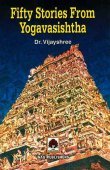Turyavastha, Turya-avastha, Turyāvasthā: 2 definitions
Introduction:
Turyavastha means something in Hinduism, Sanskrit. If you want to know the exact meaning, history, etymology or English translation of this term then check out the descriptions on this page. Add your comment or reference to a book if you want to contribute to this summary article.
In Hinduism
Shaivism (Shaiva philosophy)
Source: Brill: Śaivism and the Tantric TraditionsTuryāvasthā (तुर्यावस्था) refers to the “transcendent state called the Fourth”, according to the Īśvarapratyabhijñākārikā III.2.12.—Accordingly, “But when, through realizing [that the divine] qualities such as all-pervasiveness and eternality apply to oneself, by having the experience of the [real] “I” whose nature is [unqualified] freedom—[an experience] pointed out by the guru’s instruction and other methods that I have explained—[and] having therefore emerged as it were from [identification with] the objective knowables of the Void etc., and [as a result] abiding [in one’s real nature], then that is the [transcendent] state [called] the Fourth (turyāvasthā). [...]”.

Shaiva (शैव, śaiva) or Shaivism (śaivism) represents a tradition of Hinduism worshiping Shiva as the supreme being. Closely related to Shaktism, Shaiva literature includes a range of scriptures, including Tantras, while the root of this tradition may be traced back to the ancient Vedas.
Shaktism (Shakta philosophy)
Source: ORA: Amanaska (king of all yogas): (shaktism)Turyāvasthā (तुर्यावस्था) refers to the “fourth state”, according to the Jñānārṇavatantra (verse 1.24).—Accordingly, “At the beginning of sleep and the end of waking, there is the state whose nature is a mere tremor and which has reached fullness. It is the fourth state (turyāvasthā), the supreme digit”.

Shakta (शाक्त, śākta) or Shaktism (śāktism) represents a tradition of Hinduism where the Goddess (Devi) is revered and worshipped. Shakta literature includes a range of scriptures, including various Agamas and Tantras, although its roots may be traced back to the Vedas.
See also (Relevant definitions)
Partial matches: Turya, Avastha.
Full-text: Turya, Turyadasha.
Relevant text
Search found 3 books and stories containing Turyavastha, Turya-avastha, Turyāvasthā, Turya-avasthā, Turyāvastha; (plurals include: Turyavasthas, avasthas, Turyāvasthās, avasthās, Turyāvasthas). You can also click to the full overview containing English textual excerpts. Below are direct links for the most relevant articles:
Jnaneshwari (Bhavartha Dipika) (by Ramchandra Keshav Bhagwat)
Verse 13.28 < [Chapter 13 - Kshetra and Kshetrajna Yoga]
Thirty minor Upanishads (by K. Narayanasvami Aiyar)
Jainism and Patanjali Yoga (Comparative Study) (by Deepak bagadia)
Part 2 - The History of Indian Philosophy (theoretical background) < [Chapter 1 - Introduction]
Related products
